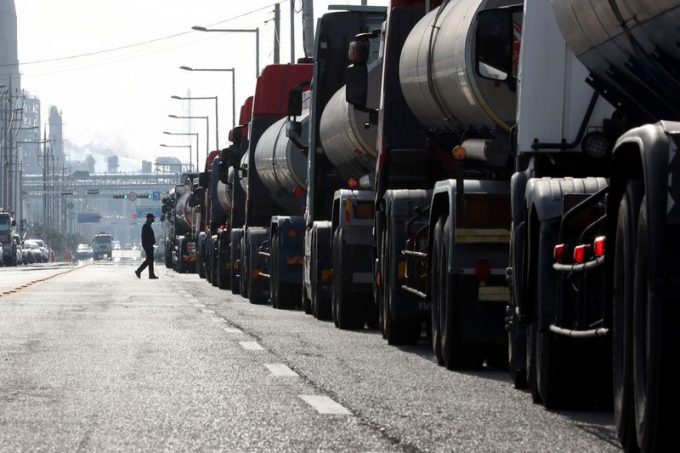Government must stand firm, say shippers after latest Korean strike talks fail
The South Korean government has refused to bargain with striking truckers, beginning the second week ...

South Korea president Yoon Suk-yeol announced today his government would seek further dialogue with the country’s truckers to improve their working conditions after the Cargo Solidarity Truckers Union voted to end industrial action.
The vote followed a 14-day standoff which resulted in no extension to the ...
Comment on this article